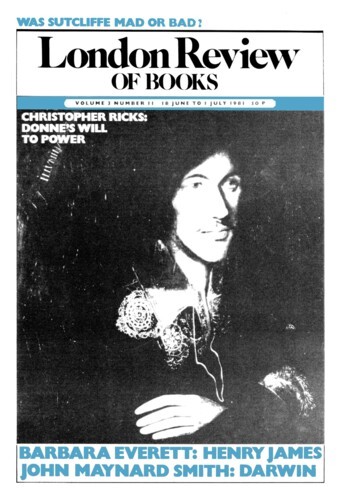James Paradis
James Paradis author of T.H. Huxley: Man’s place in Nature, is now working on an edition of Huxley’s letters. He teaches in the Department of Humanities at the Massachusetts Institute of Technology.
Voyagers
James Paradis, 18 June 1981
Amateur naturalists of the 19th century found their intellectual claims to the territory of nature weakened by several scientific developments. The most important development concerned the language of science. The specialists who were now writing about natural science increasingly refined their terms in order to build a literary structure of professional knowledge. By degrees, they located the authority of natural history in technical dialects removed from the vernacular of common experience. Their huge word systems – those of the botanical, zoological and geological sciences – slowly consumed the familiar objects of the landscape. The products of analysis and logic, rather than of an intuitive sense of the whole, these word systems resolved the unity of nature into classes of objects, which were further subdivided into structures whose elements were assigned standard definitions. The book of nature was thus transformed into a textbook which only the most single-minded were likely to master.
Read anywhere with the London Review of Books app, available now from the App Store for Apple devices, Google Play for Android devices and Amazon for your Kindle Fire.
Sign up to our newsletter
For highlights from the latest issue, our archive and the blog, as well as news, events and exclusive promotions.

